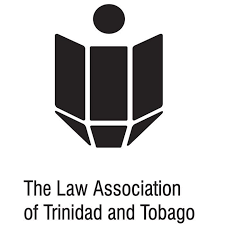The Law Association of Trinidad and Tobago (LATT) Wednesday called for the removal of “an array of colonial laws” which it said “have questionable place in any modern democracy.”
In a release on Wednesday, LATT said that legislation such as sedition, loitering, exhibiting obscene prints, singing a profane ballad as well as being an incorrigible rogue and trundling a loop “have been abolished by our former colonial members” but yet remain “fossilised on our statute books.
“The LATT hopes that urgent legislative action will be taken to correct this state of affairs. The Constitution is the supreme law. It sets out the rights and freedoms of all individuals and celebrates the dignity of us all. It should no longer preserve legislation that clearly violates human rights and fundamental freedoms,” LATT said.
Paid political ad
The lawyers association said that it had taken recent note of a recent Court of Appeal ruling that unanimously agreed that sections 13 and 16 of the Sexual Offences Act which criminalise buggery and gross indecency “did not pursue a legitimate aim, disproportionately interfered with freedom of thought and expression and were not reasonably justified.
“They were accordingly inconsistent with the fundamental rights provisions of the Constitution,” the LATT said, adding that the Court of Appeal also noted that the sections were rarely enforced.
“However, the majority held that the sections could not be declared unconstitutional because they were colonial laws which were saved by the saving clauses of the Constitution. The Court noted the broad scope of the savings law clause, which applies even when a later act repeals and replaces and existing law with modifications, as occurred in this case,” LATT said, noting that the dissenting judge disagreed with this latter conclusion.
The LATT said that with this ruling, the offence of buggery remains on the statute books here and is now punishable by five years in jail.
“The offence of gross indecency also remains and is punishable by imprisonment for two years, but with special protections for child offenders,” LATT said, adding that the decision highlights the need for urgent constitutional reform to remove the savings clause law.
LATT said it has consistently advocated for the removal of the clause, most recently to the National Advisory Committee on Constitutional Reform.
“Our data shows that 54 per cent of our membership agrees that the saving law clause should be abolished, while 65 per cent believe that Section 4 of the Constitution be amended to include protection from discrimination based on sexual and gender orientation”.
LATT said that the saving law clause has attracted sustain criticism, including from preeminent Caribbean constitutional scholars.
“The immunisation of colonial laws and punishments from being declared unconstitutional more than fifty years after independence, has no place in modern times. The removal of the savings law clause will not have catastrophic consequences. Such clauses only applied for a short period in Belize, and they are read to conform with in the Constitution in Barbados, Dominica, Guyana and St. Lucia,” LATT said. (CMC)
![]()













